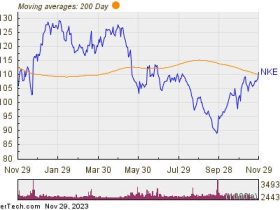Treasurys sold off on Wednesday, pushing long-term rates to their highest levels in almost three months, following a weak $16 billion sale of 20-year bonds and the release of minutes from the Federal Reserve’s January policy meeting.
What happened
-
The yield on the 2-year Treasury
BX:TMUBMUSD02Y
rose 4.3 basis points to 4.653%, from 4.610% on Tuesday. The yield is up two of the past three sessions and finished at its third-highest level of this year. Yields move in the opposite direction to prices. -
The yield on the 10-year Treasury
BX:TMUBMUSD10Y
advanced 4.7 basis points to 4.323%, from 4.276% on Tuesday. -
The yield on the 30-year Treasury
BX:TMUBMUSD30Y
rose 4.3 basis points to 4.491%, from 4.448% on Tuesday. - Wednesday’s levels are the highest for 10- and 30-year yields since Nov. 30, based on 3 p.m. Eastern time figures from Dow Jones Market Data.
What drove markets
Treasury’s $16 billion auction of 20-year notes produced “very ugly” results Wednesday afternoon, with dealers stepping in to take a higher-than-average 21.2% of the sale, according to Tom di Galoma, co-head of global rates trading for BTIG in New York.
The auction results triggered an afternoon selloff in government debt ahead of the 2 p.m. Eastern time release of the minutes from the Federal Reserve’s Jan. 30-31 policy meeting.
The selloff then continued as the minutes of the Fed’s most recent gathering came in. The minutes leaned in a hawkish direction and included a discussion around the possibility that inflation might stall.
Fed-funds futures traders priced in a 93.5% probability that the central bank will leave interest rates unchanged at between 5.25% and 5.5% on March 20, according to the CME FedWatch Tool. The chance of at least a 25-basis-point rate cut by June was seen at 72.3%. The central bank is mostly expected to deliver at least three quarter-point rate cuts by December.
Meanwhile, at a banking event on Wednesday in Washington, D.C., Fed Gov. Michelle Bowman said uncertainty in the economic data rules out rate cuts for now.
What strategists are saying
“After a burst of optimism in late 2023, we’re coming back to reality as inflation lingers,” said David Russell, global head of market strategy at TradeStation. “Policy makers don’t see any reason to rush rate cuts, especially with the strong labor market. Investors could now find themselves back in wait-and-see mode, with an eye on the next employment and CPI reports. Things could drift until we get more data.”
Read the full article here









Leave a Reply